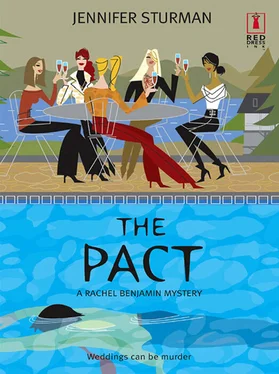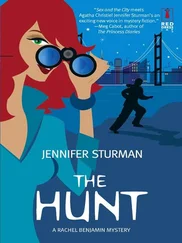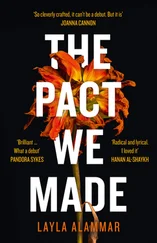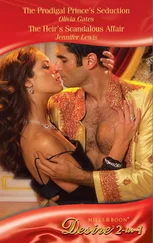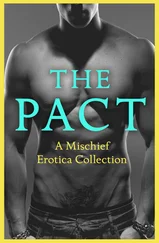Emma ran out after her mother, a long T-shirt hanging halfway to her knees. She looked no older than she had freshman year. “Mother—what’s wrong?” she cried, her voice trailing off as she followed her mother’s gaze. “Oh. Oh. Is he…is he…?” A wave of white washed the color from her face.
Matthew looked up at her wordlessly, his expression blank. Hilary and Mrs. Furlong caught her as she crumpled to the floor.
I wasn’t sure when, exactly, Emma’s father arrived, but I remembered that he was panting, having run from his studio in the old stables. He stopped short at the edge of the pool area where the grass gave way to flagstone. I’d just noted his presence when I heard cars pulling up the drive toward the house. Their sirens echoed in the quiet morning air, the sound ricocheting from hill to hill.
I had a strange sense of déjà vu, as if I had woken up in an Agatha Christie novel. The only missing pieces were the vicar and Miss Marple.
The first question to ask was whether Richard had committed suicide. But I knew the chances of that were all but nil.
Richard had treated the world, and everyone and everything in it, like his oyster. He was far too self-important to even play with the idea of putting an end to himself. And even if he had, he would never have arranged to die by drowning. He had been a varsity swimmer in college, before practices and meets began putting too much of a damper on his playboy aspirations. There was no way he would ever do anything that would call into doubt his erstwhile athleticism. Much less expose his handmade English shoes to chlorine. No, Richard would write a long and vindictive suicide note before blowing his brains out in such a way as to keep his handsome face intact while splattering enough blood and guts and gore to make cleaning up after him a royal pain in the ass.
I couldn’t have been the only one thinking such thoughts as the paramedics went through the appropriate motions over Richard’s body. The local police officers who’d arrived shortly after the ambulance had immediately roped off the pool area with bright-yellow tape. They now spoke in low voices off to the side, trying to look as if possible foul play was a staple of life in this remote corner of the Adirondacks. Sean had picked up Emma after she fainted and carried her inside, escorted by Mrs. Furlong and Jane and followed by Luisa and Hilary.
Matthew had disappeared into the pool house, but he quickly reemerged in a dry T-shirt and shorts and came to perch beside me on the steps leading up to the porch. We watched Mr. Furlong talking to the paramedics, his lined face inscrutable.
“What do you think happened?” Matthew asked me in a low voice.
“I don’t know,” I answered. “If he were anyone else, I would guess that he had too much to drink or something and fell in. But Richard could always hold his liquor. Maybe he slipped, and hit his head, and then fell in?” I was angling for death by accident, and I was eager for Matthew to validate my hopes with solid medical evidence.
Matthew was quiet for a moment, as if carefully choosing his words. “I don’t think he drowned, Rach. I think he was dead before he hit the water.”
“What do you mean? How do you know?”
“I don’t know, at least not for sure, but I was doing CPR on him, pumping his chest. If Richard were breathing when he went underwater, he would have water in his lungs. If he had water in his lungs, it’s almost impossible that some of it wouldn’t have come up. But none did.”
I considered this. A police photographer had arrived to record the scene for posterity and, I would assume, for evidence of a crime. She asked Mr. Furlong and the paramedics to back away from the body.
“There’s something else,” added Matthew. “His pupils were dilated.”
“What does that mean?”
He sighed. “I see a lot of ODs—overdose cases—at the clinic. And their eyes look a lot like Richard’s did.”
“He OD’d?”
“Possibly.”
“But Richard didn’t use drugs.” In fact, I remembered him holding forth in a nauseatingly self-righteous way on the topic, complete with several ideas about how the war against drugs should be fought. That most of his suggestions would violate the civil rights guaranteed by a number of constitutional amendments hadn’t seemed to bother him.
“I’m not necessarily talking about heroin or cocaine.”
“Even pills. He didn’t even like to take aspirin when he had a headache—he thought it was for wimps.”
Matthew shrugged. “This is all speculation, Rach. I don’t know anything for sure.”
I ran my hands through my disheveled hair. Had Richard been drugged, poisoned in some way, without his knowledge? Did someone kill him, perhaps slipping something into his drink, and then push him into the water in an attempt to mask the crime?
And while part of me wanted to know the answers to these questions, part of me was scared to find out.
I’d thought that nothing could be worse than Emma marrying Richard, but maybe I’d been wrong. If Richard had been killed, it meant that someone here—one of this close-knit circle of family and friends—was a murderer. And that was an idea I didn’t like one bit.
I closed my eyes and took a deep breath, trying not to think about Emma’s pained exchange with her father the previous evening, or Luisa’s rapid appearance on the scene this morning and surprising composure, or Hilary’s ill-contained excitement, almost bordering on glee. And then, of course, there was Matthew.
I opened my eyes and looked over at him. He was silently watching the paramedics and police, his expression neutral. I’d realized long ago, however, that Matthew wore his plain, unassuming face like a mask. This wasn’t the first time I’d wondered what he was thinking.
Matthew was Emma’s boy-next-door in just about every sense of the word. His mother and Mrs. Furlong had been friends since birth, practically, classmates at both Miss Porter’s and Wellesley. He’d grown up in a discreetly luxurious apartment a few blocks up Park Avenue from the discreetly luxurious apartment in which Emma’s family lived. The Furlongs had been regular guests at the Weirs’ summerhouse in the Hamptons, and the Weirs, including Matthew and his elder sister, Nina, had visited the Furlongs’ Adirondack camp for a few weekends each year. The two families had vacationed together, whether on the beaches of Saint Bart’s or on the slopes of Alta. They had celebrated holidays together, as well—Thanksgiving in the country and Christmas on Park Avenue. Nina and Matthew were in college when their parents were killed in a car crash, and in the years that followed the Furlongs had become their surrogate family.
Matthew’s family tree was even more lushly hung with cash than Emma’s, if such a thing were possible. Regardless, he was one of the most down-to-earth people I knew. I had first met him when Emma and I were freshmen, sharing a double room in Strauss Hall. He was then in his second year at Harvard Medical School. He came by during Freshman Week, per the orders of Emma’s parents, to take Emma out to dinner and make sure that she was adapting smoothly to college life. He arrived bearing an armful of flowers to brighten our drab dorm room and a tin of brownies to mitigate Emma’s well-documented chocolate cravings.
He was funny-looking, tall and gangly with shaggy brown hair, a beaky nose and bright-blue eyes. Even if his features had been more regular, he wouldn’t have been my type—even then I preferred them dark and neurotic. Still, he had a quiet strength of character, and he seemed so genuinely nice and trustworthy that he put one instantly at ease. He was clearly smitten with Emma, who treated him exactly like one would treat a big brother, with a mixture of affection and annoyance. Matthew was a fixture in our lives all through our college years, during which he finished medical school and his internship and began his residency at Mass. General.
Читать дальше
